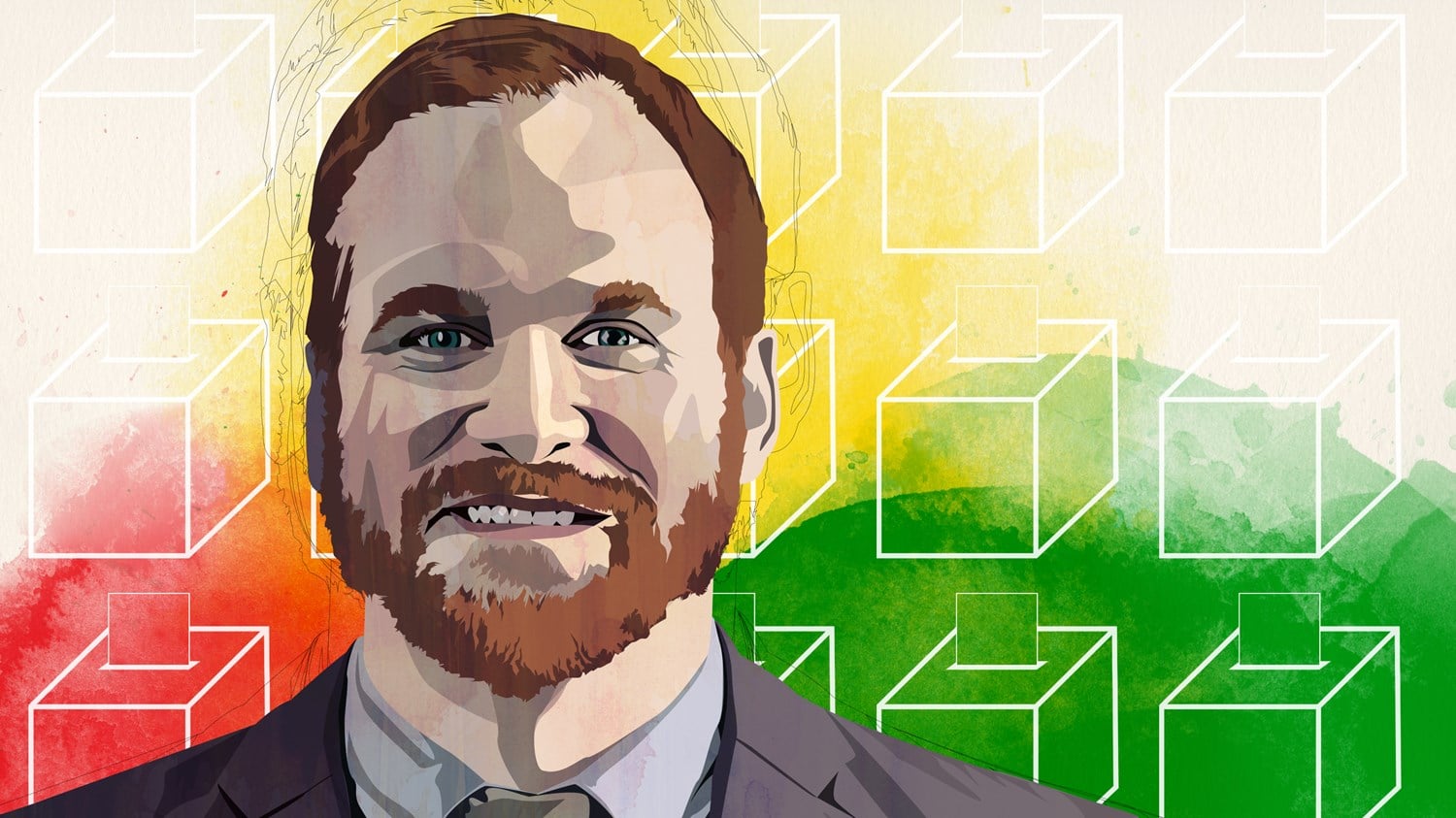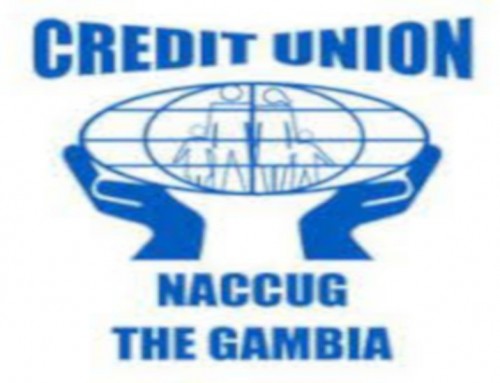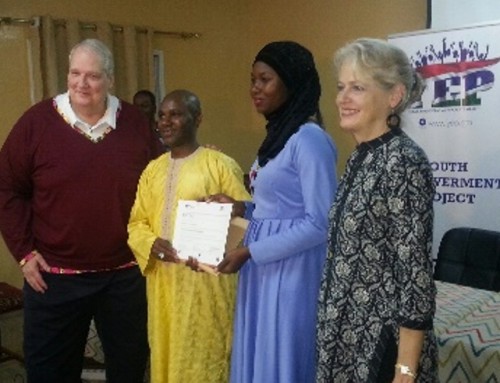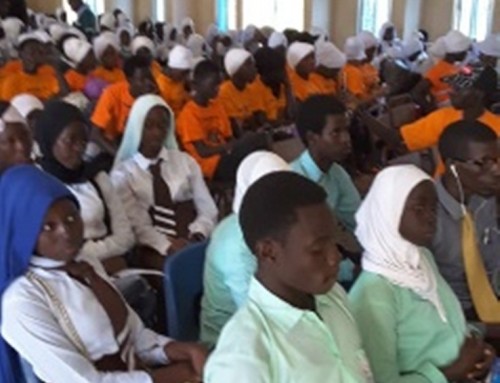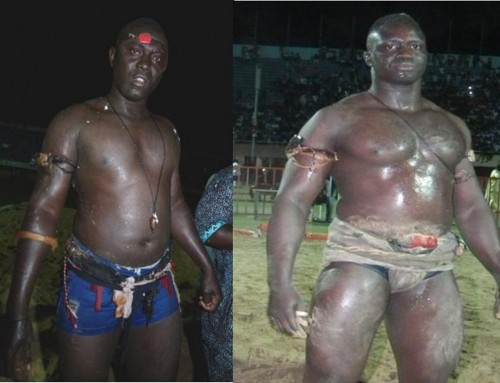[ad_1]
Jeffrey Smith hadn’t slept for two days. The notifications sounded throughout the night — WhatsApp, Facebook, Skype, Viber, Gmail, Google Voice. One minute the iPhone would vibrate against his small antique kitchen table; the next, the laptop would ping with an alert. December’s elections in Gambia represented its first real chance at ousting a dictator who had ruled for 22 years — and Smith’s apartment had become a de facto vote-tallying center.
Never mind that Smith was some 4,000 miles and five time zones away from Gambia’s capital, Banjul. Or, for that matter, that Smith is an American who hadn’t been to the tiny West African country in four years — a trip he’d rather avoid since the aforementioned dictator, Yahya Jammeh, had taken to castigating him in state newspapers. Over the years, Smith had become a well-known figure among Gambian activists and his Twitter feed a pillar of counternarrative during Jammeh’s information blackouts.
So throughout election day and the night that followed, Smith disseminated information across the Atlantic Ocean from his one-bedroom apartment in northwest Washington, D.C. His tweets covered voter turnout, district tallies and the situation on the ground. His sources included a network of dozens of Gambian volunteers aligned with the opposition, who were stationed at polling centers throughout the country to monitor the count.
Jammeh kept mum on early results and had shut down the internet besides, but volunteers used proxies and VPNs to relay the data to Smith. He continued his Tweetcast: “No one’s telling me to stop, so … ” he typed, prefacing some early results: The opposition candidate was leading Jammeh by 16 points.
In #Gambia‘s 2006 election, Yahya Jammeh lost 1 constituency.
In 2011, he lost 0.
This year, he has already lost 7 of 13. #GambiaDecides— Jeffrey Smith (@Smith_JeffreyT) December 2, 2016
No one told him to stop. Instead, Gambians asked for more. As the night wore on, Gambians at home and in the diaspora peppered Smith for updates on the count, on rumors about rigging, on what would happen next. Jammeh was losing, and the state continued its silence. Would he concede, or would he and his cronies craft an alternative narrative and refuse to give up power? Buying time, Jammeh instituted a media blackout. But he couldn’t shut down Smith, whose 140-character dispatches found hundreds of retweets and millions of impressions.
Around 7 a.m. Eastern Time, something remarkable happened: Jammeh conceded the election — on national television, no less. “Wild, celebratory pandemonium” ensued, recalls Smith, who was watching on the internet, alone in the dark at his kitchen table. Over Twitter, Gambians and Africans from across the continent sent their congratulations to Smith on Twitter. Some suggested Gambia offer him citizenship. “Congrats to YOU,” Smith tweeted back.
Congrats to YOU. So happy for you and all Gambians liberated from tyranny. Let’s get to work! #GambiaDecides https://t.co/0LNud6mLLf
— Jeffrey Smith (@Smith_JeffreyT) December 2, 2016
Thank you so much, chief! I can’t wait to relax in a sunny, newly democratic Banjul with you someday soon. Better days ahead for #Gambia! ?? https://t.co/IMAVEkSd8Z
— Jeffrey Smith (@Smith_JeffreyT) December 3, 2016
***
Baby-faced, red-headed and all of 36 years old, Smith disavows credit for what happened in Gambia — not only for reasons of modesty. He doesn’t want anyone thinking he’s a “white savior.” When he’s labeled as such on Twitter, it’s often the diaspora that jumps to his defense. “To a point, he became a member of the Gambian diaspora,” says activist Dr. Amadou Janneh, who was imprisoned, tortured and exiled during Jammeh’s regime. Americans who work on foreign policy, and especially on human rights in Africa, say Smith thrust Gambia into the global spotlight. “If there was no Jeff Smith, there’s a pretty good argument that we might not be where we are today with Gambia,” says Todd Moss, a former high-level state department official for Africa.
Likable and responsive, Smith has built relationships with dozens of activists from Angola to Zimbabwe, and has American officials at the highest echelons on speed dial. One of his strengths: Getting D.C. power brokers and activists who fight repressive regimes in the same room. Another? Twitter, which he has used to build a constituency for change among human rights wonks, policymakers, and leaders and activists in Africa and its diaspora. For Smith, Twitter is part watercooler, part advocacy megaphone. He tweets throughout the day on serious topics like political economy and dictatorship, but also uses Twitter to create and nurture camaraderie, even community.
Smith’s realization that Twitter could be a powerful force for good came just a few years ago, when he launched a successful Twitter campaign to release two Swazi activists, Thulani Maseko and Bheki Makhubu, from jail. The unseating of Jammeh, who ruled for 22 years and claimed he would rule for a billion, marked a kind of grand culmination. But of course, Smith has more than Gambia in his sights. He aims at no less than unseating bad rulers all across Africa. His specialty: Tiny countries where the power hungry get away with murder and democracy is in high demand — places like Swaziland, Djibouti, Equatorial Guinea, Gabon and, until recently, Gambia. If, as he believes, the cause of those countries’ woes is bad leadership, fixing them requires toppling the man at the top. Democratically.

After years of advocacy work at the Robert F. Kennedy Center for Justice and Human Rights and Freedom House, Smith last year started Vanguard Africa. The political consultancy, recently turned nonprofit, supports democracy-loving candidates for office in African elections. He teamed up political consultants Joe Trippi — with whom he struck up a relationship over shared connections to Zimbabwe’s opposition — and Christopher Harvin. His board is stacked with some of the biggest names in African human rights, like Kenya’s John Githongo.
Key to Smith’s success in African politics is his ability to find support across American political lines. Since Jammeh’s ouster, both liberal Silicon Valley philanthropists and conservative campaign donors have approached Smith about backing Vanguard Africa. Then there are the anonymous donors: Some 50 small donations have poured in through Smith’s website since January. Until then, Smith had operated on a budget of around $10,000, money donated by a couple of friends.
Smith is pushing democracy at a time when many experts say its future is in peril. The world has become less free over the last decade, according to Freedom House, and the future of the International Criminal Court in Africa is uncertain. This year, like most years since 2006, the Mo Ibrahim foundation was unable to find a winner for its annual $5 million cash prize, meant for an African president who has handed over power and made remarkable change.
Notwithstanding the apparent backsliding — or maybe because of it — Africans want more democracy than they’re getting, according to Afrobarometer, a pan-African research network that surveys public attitudes toward democracy and governance in Africa. And Twitter is where the conversation about democracy and governance happens: Africans tweet about politics more than any other topic, and far more than Americans or Brits too, according to the Portland Communications report How Africa Tweets. Perhaps that’s why nearly 20 African governments shut down the internet in 2016 for periods of days or even weeks. The seemingly strong desire for free and fair elections is a talking point Smith often invokes, especially when critics claim he’s importing Western values.
Of course, getting democratic leaders into office doesn’t guarantee they’ll rule democratically — or that they’ll hand over power when their terms are up. Western governments and the United Nations might issue denunciations of leaders who overstay their constitutional terms or rig elections (we’re looking at you, Joseph Kabila, Paul Kagame and Yoweri Museveni), but practical consequences, like economic sanctions, are rare. Besides, sometimes the very leaders who hold onto power are those who were once beloved or heralded as liberators. Across the continent, there’s “authoritarian solidarity between these liberation movements–turned–political parties,” says Smith. In Southern Africa, only four of the 15 countries have had political party turnover in the leadership since decolonization.

Smith first became interested in African affairs precisely because of the complexities of postcolonial politics. When Ahmad Kathrada, a political prisoner jailed alongside Nelson Mandela, came to speak at the University of Connecticut when Smith was an undergrad, young Smith caught a bug. Two degrees later, the kid who grew up on a miniature horse farm in rural Connecticut and was the first in his family to go to college or get a passport would move to D.C., travel to a dozen African countries and go on to help unseat a dictator.
Yahya Jammeh banned protests. He did NOT ban victory celebrations.
We have won. #Gambia has won. This is massive. MASSIVE.#GambiaDecides— Jeffrey Smith (@Smith_JeffreyT) December 2, 2016
***
Smith’s playbook is built around finessing relationships in complex, often emotional situations. “One of the surest ways the opposition shoots itself in the foot time and time again is the opposition not uniting,” says Steve Feldstein, a former state department official who worked with Smith on Gambia. In the case of Gambia, Smith convened three major opposition candidates in New York. Behind closed doors, they hammered out details for electoral reforms, new constitutional term limits and presidential age caps. These activists had suffered for more than two decades at the hands of Jammeh, but agreeing on one path forward was tricky, and at times the discussion became heated. Smith, says Feldstein, is able to use his “savvy” to identify gaps in how opposition candidates are organized and how to push forward “a united slate.”
Meanwhile, Smith acted as a hype man for Gambia, penning op-eds in Foreign Affairs and Foreign Policy about an underdog story for the ages: Gambians would vote out a ruler who threatened to slit the throats of gay men. And he found branding that stuck, labelling Jammeh “the worst dictator you’ve never heard of.” “Dictators thrive in the shadows,” says Smith. Gambia’s population is less than 2 million, but somehow press organs from Deutsche Welle and The Guardian to Reuters and the AP found a way to cover the run-up to the elections. And on the morning of December 1, Gambians showed up en masse to vote.

Although he’s done a lot of his organizing from the safety of Washington lately, Smith’s work can be uncomfortable. Aside from its sheer risk and emotional toll — several of Smith’s journalist and activist friends have been jailed, killed or disappeared — he’s up against some formidable foes. Rwanda’s Kagame has blocked Smith on Twitter, Swazi security has labeled him a terrorist, and the Zimbabwean state-sponsored press has published creative “exposés” on his history as a CIA agent (a job he never held) or how he failed out of Harvard (a school he never attended).
Then there are the other well-resourced D.C.-based lobbying firms willing to contract their services out to those with the deepest pockets, no matter how sinister. The practice is common: Shady characters hire American or British public relations firms to help polish their image and plot campaign strategies. Take current Kenyan president Uhuru Kenyatta. When he ran for president, he was under investigation by the International Criminal Court. The British PR firm he hired managed to come up with a campaign strategy that painted the indictment of him as a neocolonialist endeavor, and his opponent as an agent of the West. It worked.
That’s why, in part, Smith does not always disclose the candidates he and Vanguard work with. Doing so can give the incumbents reason to hire a moneyed lobbying firm before his candidate gains traction, smear them as colluding with the West, or worse — jail or disappear them.
But even as Smith presses ahead in elections across the continent, there’s little chance he’ll replicate his efforts with Gambia. American support for democracy is dicey these days, the state department is targeted for massive cuts, and many of the officials in Smith’s Rolodex have moved on. It is unclear whether the posts they filled will be replaced. The position of Africa director at the NSC, for instance, remains unfilled.
Smith is unsure what to expect of the administration, but for now he’s looking to Africa and to his Twitter followers. After Gambians elected a new president, Zimbabweans and Kenyans were asking him to come work with the opposition there next. His answer? Sign me up.
Count me in! ? https://t.co/t55MaFzMBc
— Jeffrey Smith (@Smith_JeffreyT) December 2, 2016
Sign me up. cc: @VanguardAfrica https://t.co/GiXXrElb3q
— Jeffrey Smith (@Smith_JeffreyT) December 2, 2016
[ad_2]
